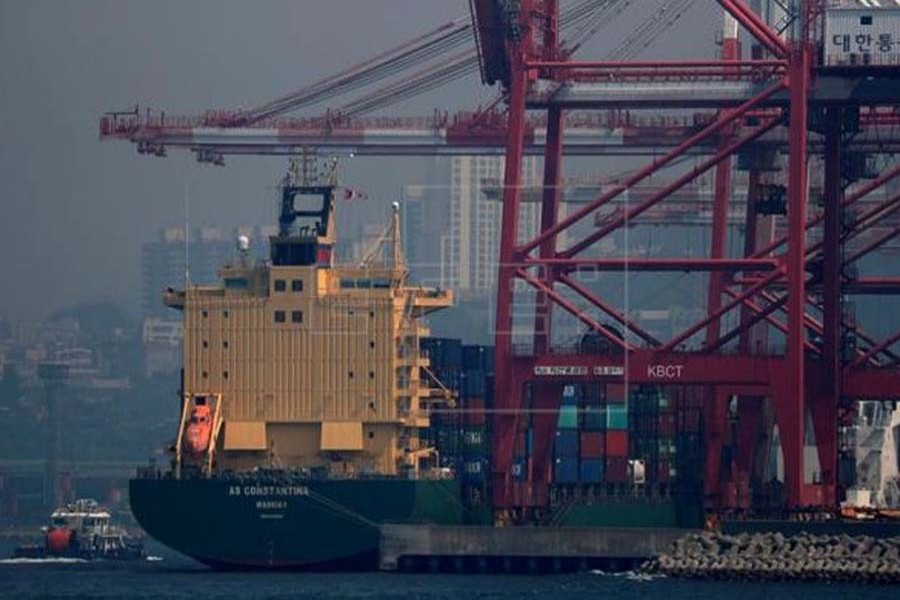A surge in South Korean government spending boosted the country’s economy in the fourth quarter (Q4) but weakening exports braked last year’s annual pace of growth to a six-year low.
Tuesday’s Bank of Korea GDP report showed growth of 1.0 per cent in the fourth quarter, the fastest in three quarters as the economy rode a spurt in government stimulus, reports Reuters.
Seoul increased spending by 3.1 per cent on-quarter, the biggest rise in almost nine years and helped boost construction and capital investment.
The advance estimates beat the median forecast of 0.6 per cent in a Reuters survey, as did the fourth quarter’s annual pace at 3.1 per cent, handily outpacing the 2.0 per cent rate in the third quarter and marking the fastest expansion in just over a year.
Yet, some of the promising fourth quarter figures did little to mask a gloomy outlook, as exports declined 2.2 per cent on-quarter and remained the biggest risk for South Korea’s trade-reliant economy as growth in its biggest market China cools.
“With growth in China and the US (South Korea’s two largest trading partners) set to slow in 2019, the outlook for the South Korean export sector is challenging,” said Krystal Tan, economist at ANZ.
“Heightened uncertainty about global demand and the maturing global tech cycle will in turn keep private investment weak,” said the economist.
Indeed, the full year number told a story of increasing strain across the economy.
Growth was 2.7 per cent for the whole of 2018, the slowest expansion in six years but matching the 2.7 per cent rate projected by the central bank.
The BOK said Asia’s fourth largest economy would have contracted in the fourth quarter without government spending, and its contribution to GDP in the fourth quarter was wiped by declining exports.
“Increased fiscal spending towards the year end has cushioned the blow to exports, as shipments of chips and electronic products are falling,” a central bank official said.
Construction investment climbed 1.2 per cent in the fourth quarter while capital investment jumped 3.8 per cent, the sharpest increase in six quarters.
Private consumption expanded at double the pace seen in the third quarter with a 1.0 per cent growth rate.


